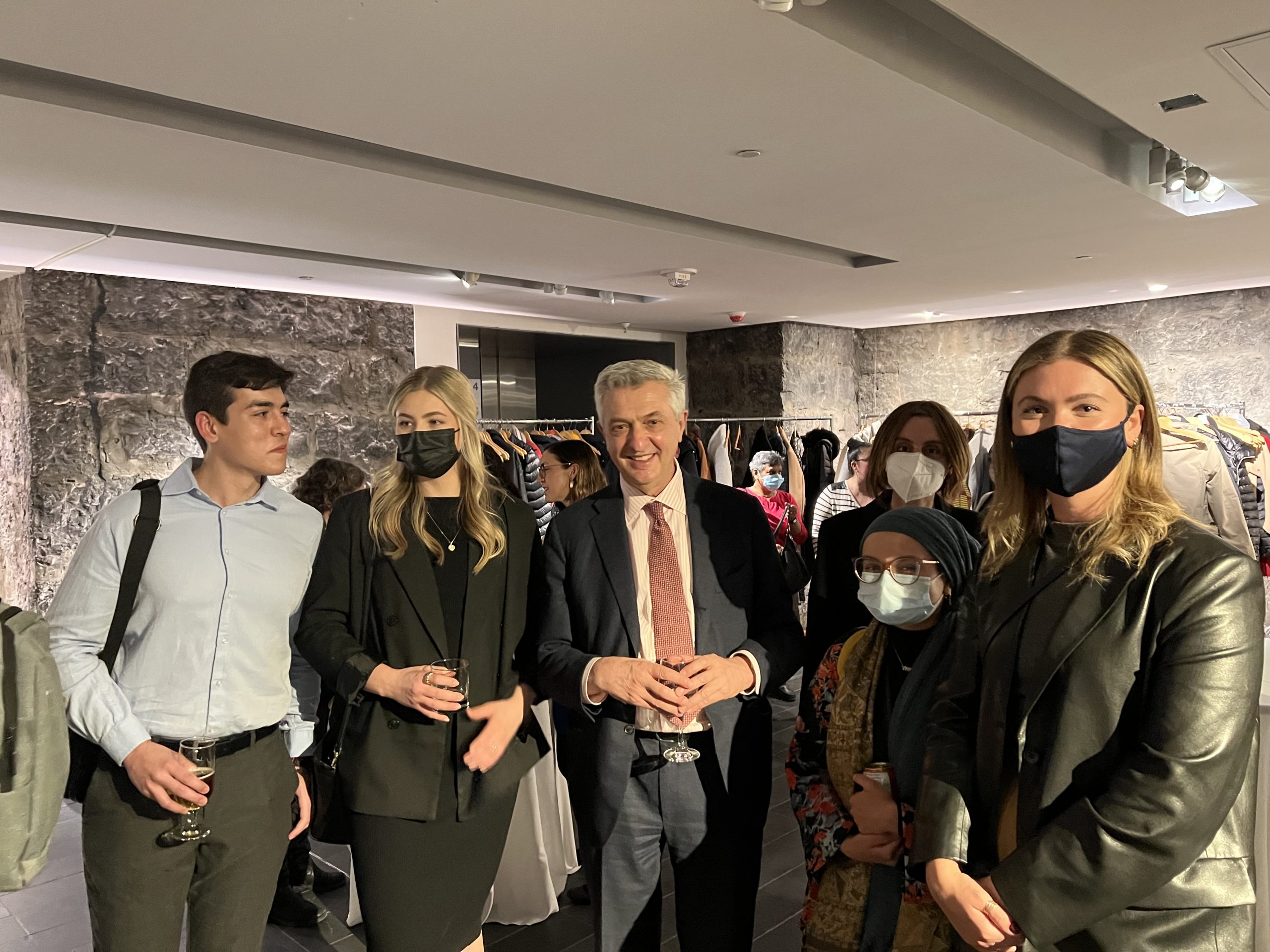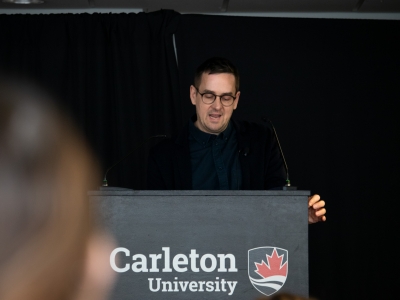
UN High Commissioner for Refugees Filippo Grandi meets with Political Science students. From L-R: Luiz Leomil (PhD, Political Science), Danica Dahlin (MA, Political Science), Filippo Grandi (UN High Commissioner for Refugees), Nadeea Rahim (MA, Migration and Diaspora Studies), Rachel McNally (PhD, Political Science), Alex Lund-Murray (MA, Migration and Diaspora Studies). Photo credit: M. Casasola.
Since the launch of the Local Engagement Refugee Research Network (LERRN) in 2018, 12 Carleton students have benefited from a special arrangement with the United Nations Refugee Agency (UNHCR) to undertake an internship within its Ottawa office. Five of these students recently met with the United Nations High Commissioner for Refugees Filippo Grandi during an official visit to Canada.
“It was a great moment to see all of the students who had benefitted from this experiential learning opportunity engaging in conversation with the High Commissioner and sharing ideas on how the United Nations can respond to the global needs of refugees,” said James Milner, Associate Professor of Political Science at Carleton University and Director of LERRN.
After taking Milner’s course on the politics of the international refugee system, the students have the opportunity to apply what they’ve learned in the internship. For Luiz Leomil, the experience provided insights for his research about refugee policies in the Global South.
“Working in the resettlement side of the refugee regime made me familiar with the nuances in several operations in the world,” says Leomil. “In particular, I was able to see how countries’ adherence to international refugee law varies significantly (including through time) and how this can impact the protection of refugees and their resettlement prospects.”
Student Danica Dahlin drew on her experience as a varsity athlete to research pathways for refugee Olympians to attend Canadian universities. Her efforts as an intern helped three athletes get accepted on student scholarships.
“It was kind of serendipitous because sports are a special interest of mine: I had experience with the varsity athletics processes and structures in Canada,” says Dahlin. “I just happened to be there at the time that they were exploring this idea, so I feel very fortunate to have been part of this in a very small way.”
Rachel McNally, who completed the internship as a master’s student, is now a PhD student with the LERRN team.
“As someone who is passionate about refugee resettlement and sponsorship, both personally and academically, I was thrilled to have the opportunity to work at UNHCR,” she says. “The program is a practical way for students to serve Ottawa and serve the world while gaining valuable work experience.”
The internship agreement is one of many initiatives that fall under the Local Engagement Refugee Research Network (LERRN), “a team of researchers and practitioners committed to promoting protection and solutions with and for refugees.”
Recent efforts include the launch of eight research chairs across four regions of the Global South, funded by the International Development and Research Centre (IDRC).
LERRN is also supporting a group of refugee leaders who have convinced Canada, the U.S. and Germany to include refugee advisors in their delegations to meetings on the international refugee system.
LERRN is funded by a Partnership Grant from the Social Sciences and Humanities Research Council (SSHRC).
Wednesday, April 20, 2022 in Department of Political Science, News
Share: Twitter, Facebook



